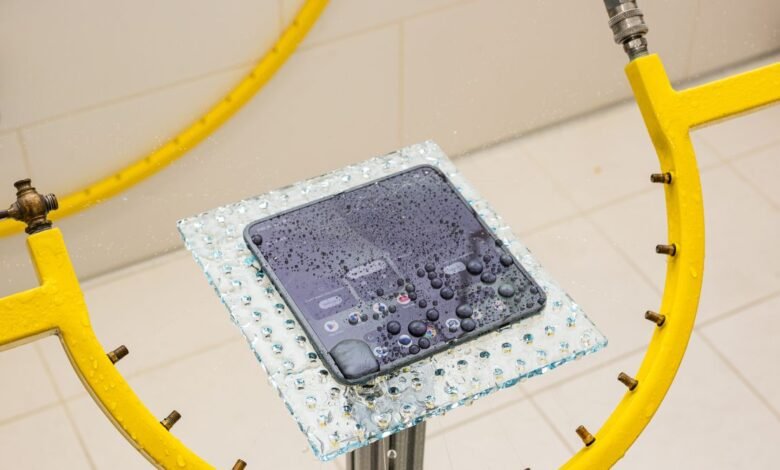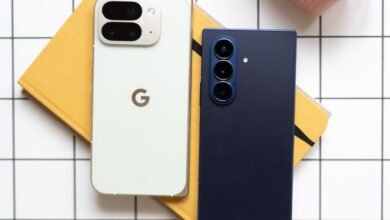Inside Google’s Pixel Hardware Stress Test Lab

▼ Summary
– Smartphones are becoming more durable through annual improvements like better glass and screen size adjustments.
– The Pixel 10 Pro Fold has an IP68 rating for water and dust resistance, surpassing Samsung’s Galaxy Z Fold7 which is only IP48.
– Google tests device durability extensively at its Reliability Labs, subjecting products to drops, tumbles, and freezing conditions.
– The Pixel 10 Pro Fold is tested to withstand 200,000 folds, with a gearless design and strengthened layers to ensure both hinge and display last over 10 years.
– Google conducts surface abrasion tests on smartwatch straps using robotic arms to measure wear resistance against various materials.
Our smartphones have become indispensable companions, engineered to withstand the rigors of daily life while delivering ever-improving performance. Each year brings innovations in durability, from tougher glass that resists shattering to refined designs that feel just right in your hand.
Consider the recently unveiled Pixel 10 Pro Fold, which now carries an IP68 rating for dust and water resistance, matching the protection offered by many premium non-folding devices. Just a short time ago, folding phones struggled with hinge vulnerabilities, particularly where dust was concerned. Even Samsung’s current Galaxy Z Fold7 only reaches an IP48 rating, falling short of the Pixel’s dust protection.
Throughout the development cycle, often more than a year before launch, manufacturers subject their devices to exhaustive testing. Google recently offered a rare look inside its Reliability Labs, a modest-looking facility at its Mountain View headquarters where next-generation Pixels and smartwatches undergo extreme trials. Devices are dropped, tumbled, frozen, and folded thousands of times to evaluate real-world resilience.
One of the most visually striking tests involves a specialized machine that clamps the Pixel 10 Pro Fold and methodically opens and closes it. This process allows Google to confidently claim the hinge can endure 200,000 folds, equivalent to more than a decade of regular use. By comparison, Samsung promises 500,000 folds for the Galaxy Z Fold7. Google’s confidence isn’t just in the hinge; a new gearless design creates more room for the display to flex gently, reducing strain. Additional reinforcement layers further protect the screen, aiming for a full ten years of reliable performance.
Beyond folding, wear and abrasion tests play a critical role in refining product quality. In one setup, a robotic arm fitted with a Pixel Watch 4 moves repeatedly across different surfaces, wood, metal, or other materials, simulating long-term friction on the band. A pressure sensor ensures consistent contact force, allowing engineers to evaluate how new strap materials hold up over time. This methodical approach helps identify potential weak points long before a product reaches the market.
(Source: Wired)





